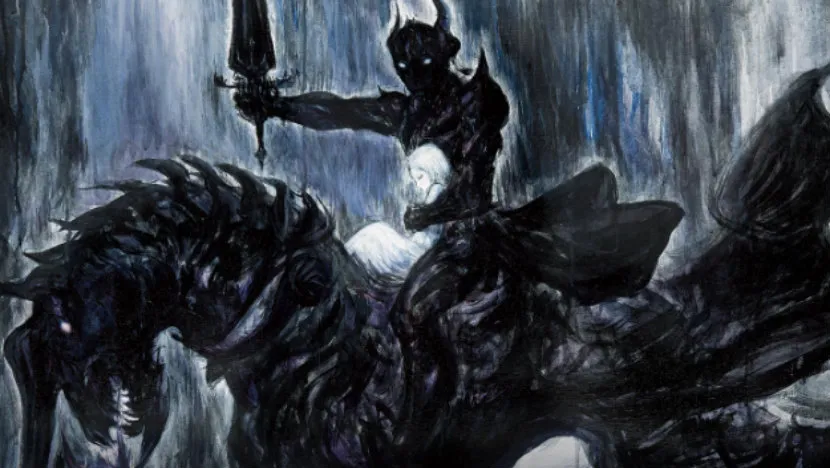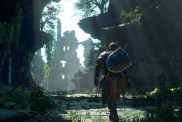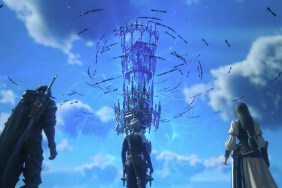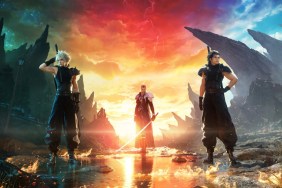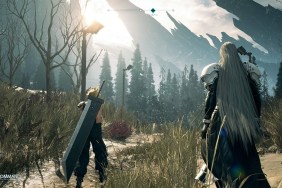Recently, I flew across the dang country from hot and humid Virginia to breezy (and sort of wet) San Francisco, then came back the next day. I did this foolish thing, which included spending nearly an entire extra day at an airport in Philly, to get my hands on Final Fantasy XIV: Shadowbringers, the third expansion to Square Enix’s hit MMORPG. You can check out my preview for information on what I got to play, including some thoughts on how the new Gunbreaker and Dancer jobs handle at max level. Alongside actually playing the game, I also had the chance to speak to director and producer Naoki Yoshida, the man affectionately known to fans as Yoshi-P. I asked him about the creative process behind adding new content to the game, his thoughts on current trends in gaming, and more.
PlayStation Lifestyle: My first question pertains to the Trust System. I was surprised to see such a large piece of solo-oriented content added to the game for Final Fantasy XIV: Shadowbringers. I’m curious about the motivation here.
Naoki Yoshida: There are major reasons we were motivated to implement this system. First of all, while Final Fantasy XIV is an MMORPG, there are so many different types of people who come to enjoy the game. For example there are groups of people who really enjoy battle content – going into the raids, wanting to challenge the Ultimate Battle content. Some people really enjoy taking screenshots of their characters; they love the look of their character and want to find that perfect shot to make them look very cute and appealing. There’s also a group of people who enjoy using Final Fantasy XIV as a chat platform.
Among those people, there may be some who want to enjoy the main scenario; Final Fantasy XIV is a very story-oriented game. But they want to take their time, they want to immerse themselves further, but partying up with other people can break that. We also want to break that preconceived notion that it’s mandatory to create parties with other people just because it’s an MMORPG. We wanted to make sure to bring that enjoyment of progressing through the main scenario to people who don’t necessarily want to party with other players.
Hypothetically speaking, if every single person utilized the Trust system to get through the main scenario content, I feel like it isn’t detrimental. The fact that we’re still logging into a MMORPG and sharing the same environment with other players around the world is still there. So, I feel like it’s feasible.
The other major reason for the Trust system is that we wanted to get the players to fall in love with the characters even further. The NPCs you take with you are from the group that has traveled with you throughout the story. But it felt like these characters, when it came time to play a dungeon, would go to run other errands, or have other things to do. By having the Trust system, it would hopefully allow players to experience the content together with these characters and love them even more.
We didn’t want to have an AI that’s simply smart – we wanted to have an AI that behaved according to the characters’ personalities. We wanted to bring out that sense of trying to save the world with your allies, bring out that element of RPGs as well. With these different characters, you can enter the dungeons with different combinations of NPCs. Of course we may not have covered every possible combination, but depending on the group you may have different dialogue between the characters.
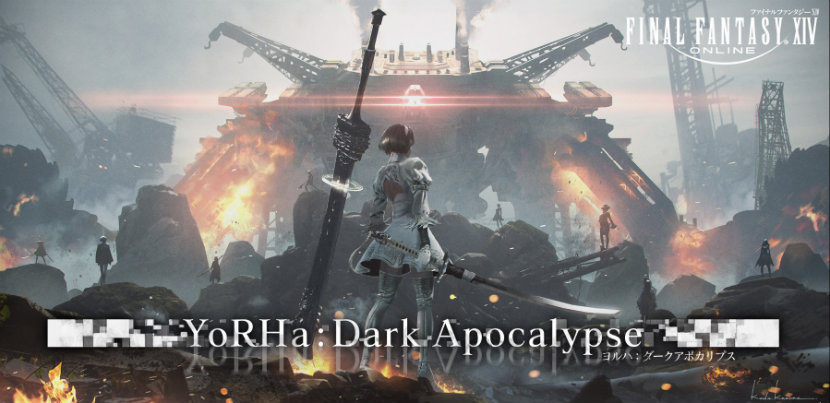
PSLS: My next question is about the NieR: Automata content (raid dungeon). I’m curious about the creative process when bringing outside creators in to work on content.
NY: We have two major reasons why we bring guest creators in to work with us. I’m sure the first reason is easy to understand. It definitely has a promotional element, by having somebody who has worked on major content or a previously-established game. Having a well known creator and having them work on Final Fantasy XIV brings in other players who may not be familiar with the game, or weren’t previously interested in Final Fantasy XIV.
The other factor is that because we are working on one title, so to speak, for such a long span of time (for better or worse), we become very efficient. We know how to optimize and crank out content very quickly. Because we are very efficient, it can be hard to break that mold sometimes. With that mindset, an outside creator may not know our rules, or even be familiar with the game. They may come up with ideas that don’t fit that mold. While some ideas won’t fit, we do our best to make what our creator wants. This could lead to a challenge that breaks our mold and brings a new kind of experience to our players.
As an example, when we did our Return to Ivalice content with Yasumi Matsuno, he is a very experienced Final Fantasy XIV player. He’s a hardcore player and very familiar with the rules we have established. On top of that, he’s very story-based in the way he creates things. But with Yoko-san, for the NieR Alliance Raid, he’s currently playing Final Fantasy XIV but before the project he was not familiar with the game. One of the first things he asked was,” what can you do in Final Fantasy XIV? What can you not do?” I told him, “no, I can’t establish those rules with you, because that would present a limitation. Instead, tell me what you would like to do and we’ll see how we can work with it and go from there.” So, we had that sort of back and forth.
Yoko-san would relay what kind of experience he would want to have, or what kind of impact he wants to make with the content. The dev team and I would iron out the details and try to end up with one cohesive story. If Yoko-san was very particular about wanting to do something in his way, the team would work to see how we could make that happen. By having that conversation, we could develop really interesting content for our players.
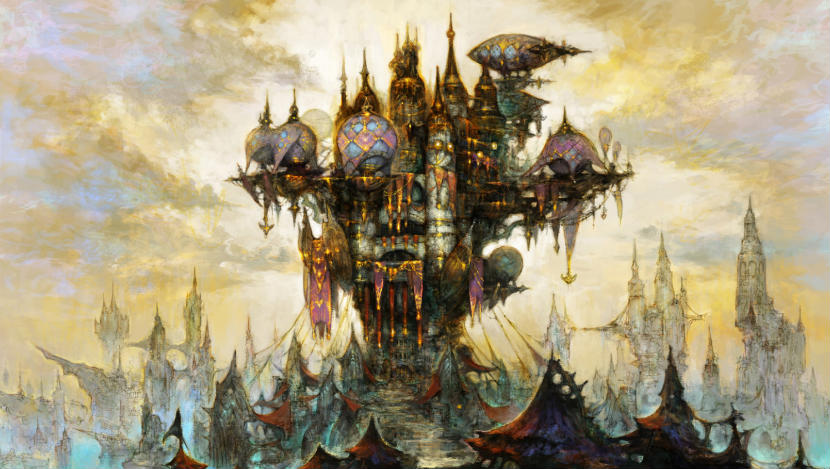
PSLS: I feel like, in games today, a lot of MMO language has left that space, molded into new ideas and almost become the standard for many big releases. A game like Destiny, for example, comes to mind. In turn, do you or the team find themselves reacting or responding to where games are as a whole today when making new Final Fantasy XIV content?
NY: We feel like we are not responding to it. With the individual content that goes into the game, maybe there is some inspiration from recent trends. There might be some kind of impact made by how games are evolving. But we make sure the overall game design is not affected. There is a policy behind that thinking.
If we wanted to take inspiration from a game mechanic from another game, and apply it to some new content or maybe or next expansion, a 6.0, we would have to consider adjusting the overall framework. We would need to revisit how the play cycle pans out, and consider how long players will spend in a particular kind of content. Rather than making those kinds of adjustments, me way as well make a new game outside of Final Fantasy XIV. Beyond that, our longtime players have grown used to the current framework, and if we introduce something that drastically changes the framework, we might risk them rejecting the idea.
Games like Anthem and Destiny are wonderful, and there are certain elements of them we see that may even make us feel envious. But if we try to implement something that is drastically different from our framework, we also run the risk of breaking Final Fantasy XIV so to speak. Rather than trying to implement these things into this game, we would be happy to see a new game that is just as competitive as those titles.
PSLS: Can you speak to the process behind creating a new job, both the creative perspective, and balancing the game? Particularly for jobs that don’t have connections to past Final Fantasy games?
NY: While some of the jobs in Final Fantasy XIV have similar names to jobs in other Final Fantasies, we try to make the gameplay experience feel unique. So we’ve never thought of it as keeping in line with the series. Whenever we do consider adding a new job, there are three major factors. First and foremost of course is the marketing and PR aspect. Second, we look at data regarding how many players are playing each job. DPS jobs are the most popular by far, so when adding new jobs that popularity is a factor.
We do also consider player feedback of course, and we keep a ranking list of job requests. We try to keep in mind which jobs are the most in demand. Finally, in each expansion we want to consider what the role of each new job would be, because from an operations perspective we want to try to keep the player population as balanced as we can.
Final Fantasy XIV: Shadowbringers is set to launch on July 2, 2019.
This page contains affiliate links to products. We may receive a commission for purchases made through these links.
